New International Commentary: The Book of Joshua
PRODUCT HIGHLIGHTS:
- Verse-by-verse commentary
- In-depth discussion of textual and critical matters
- Introductions to each book’s authorship, date, purpose, structure, and theology
- Detailed bibliography
DESCRIPTION
Recognizing that Old Testament studies today are in a state of flux as never before and that the Book of Joshua seems to be at the crossroads of this animated discussion. Marten Woudstra here takes into careful account the various views represented by recent scholarship as well as Hebrew usage and text-critical concerns.
Woudstra demonstrates that the central theme in Joshua, to which everything in the book has been made subordinate, is the fulfillment of God’s promise to the patriarchs regarding the promised land. To support his understanding of this central theme, Woudstra emphasizes the nature of the Hebrew narrative as both proleptic, offering provisional summaries of events to be taken up later in considerable detail, and programmatic, indicating that the book was written close to actual events. The excellent introduction and section-by-section commentary are supplemented by an extensive bibliography and seven instructive maps.
….
New International Commentary: The Book of Deuteronomy
PRODUCT HIGHLIGHTS:
- Verse-by-verse commentary
- In-depth discussion of textual and critical matters
- Introductions to each book’s authorship, date, purpose, structure, and theology
- Detailed bibliography
DESCRIPTION
Deuteronomy is a book about Israel’s preparation for a new life. Hardship and the wilderness lie behind; the conquest of the promised land lies ahead. What remains at this crucial stage in Israel’s history—the end of the Mosaic Age—is a call for a new commitment to God and a fresh understanding of the nature of the community of God’s people.
Interpreting Deuteronomy from a conservative perspective, Peter C. Craigie highlights the centrality of the book’s theme of covenant commitment while also taking great care to demonstrate how Deuteronomy is a book with considerable contemporary relevance. He uses resources of recent research in Old Testament studies to effectively bridge the gap of more than three thousand years that separates the modern reader from the events described in Deuteronomy, thus clarifying the primary message of the text for the modern reader. In its simplest phrasing that message is “Commit yourself to God wholeheartedly.” Deuteronomy, according to Craigie, provides a paradigm for the kingdom of God in the modern world.
….
New International Commentary: The Book of Numbers
PRODUCT HIGHLIGHTS:
- Verse-by-verse commentary
- In-depth discussion of textual and critical matters
- Introductions to each book’s authorship, date, purpose, structure, and theology
- Detailed bibliography
DESCRIPTION
The book of Numbers tells a story that has two main characters—God and Israel. The way the story is told sounds odd and often harsh to readers today. In spite of the difficulties imposed by Numbers on today’s readers, the main point of the book is of immense importance for God’s people in any age: exact obedience to God is crucial.
This comprehensive and erudite commentary—resulting from nearly a decade of study of Numbers by Timothy Ashley—presents a thorough explication of this significant Hebrew text. Ashley’s introduction to Numbers discusses such questions as structure, authorship, and theological themes, and it features an extended bibliography of major works on the book of Numbers, concentrating mainly on works in English, French, and German.
Dividing the text of Numbers into five major sections, Ashley’s commentary elucidates the theological themes of obedience and disobedience that run throughout the book’s narrative. His detailed verse-by-verse comments are intended primarily to explain the Hebrew text of Numbers as we have it rather than to speculate on how the book came to be in its present form.
….
New International Commentary: The Book of Leviticus
PRODUCT HIGHLIGHTS:
- Verse-by-verse commentary
- In-depth discussion of textual and critical matters
- Introductions to each book’s authorship, date, purpose, structure, and theology
- Detailed bibliography
DESCRIPTION
Leviticus used to be the first book that Jewish children studied in the synagogue. In the modern church it tends to be the last part of the Bible that anyone looks at seriously. Because Leviticus is largely concerned with subjects that seem incomprehensible and irrelevant today—rituals for sacrifice and regulations concerning uncleanness—it appears to have nothing to say to twenty-first-century Christians.
In this excellent commentary on Leviticus, Gordon Wenham takes with equal seriousness both the plain original meaning of the text and its abiding theological value. To aid in reconstructing the original meaning of the text, Wenham draws from studies of Old Testament ritual and sacrifice that compare and contrast biblical customs with the practices of other Near Eastern cultures. He also closely examines the work of social anthropologists and expertly utilizes the methods of literary criticism to bring out the biblical author’s special interests.
In pursuit of his second aim, to illumine the enduring theological value of Leviticus, Wenham discusses at the end of each section how the Old Testament passages relate to the New Testament and to contemporary Christianity. In doing so, he not only shows how pervasive Levitical ideas are in the New Testament but also highlights in very practical ways the enduring claim of God’s call to holiness on the lives of Christians today.
….
New International Commentary: The Book of Genesis (2 vols.)
PRODUCT HIGHLIGHTS:
- Verse-by-verse commentary
- In-depth discussion of textual and critical matters
- Introductions to each book’s authorship, date, purpose, structure, and theology
- Detailed bibliography
DESCRIPTION
This collection includes the two volumes of Victor P. Hamilton’s study of Genesis from The New International Commentary on the Old Testament
Volume 1
The first of Victor P. Hamilton’s two-volume study of Genesis in the NICOT series, this commentary contributes a solid, thorough explication of the wealth and depth of material embedded in Scripture’s foundational book.
Hamilton’s substantive introduction—which serves both this volume and the one covering chapters 18–50—discusses the structure of Genesis and its composition, its theology, the problems involved in its interpretation, its canonicity, and the Hebrew text itself. The commentary proper, based on Hamilton’s own translation, evidences his extensive knowledge of the ancient Near East and of contemporary scholarship, including literary, form, and text criticism. Siding with the arguments in favor of the literary and theological unity of the Genesis text, Hamilton stresses the main theme running throughout the book—God’s gracious promise of blessing and reconciliation in the face of evil and sin.
A unique feature of this book is Hamilton’s emphasis on the reading of Genesis by the New Testament community. Following his commentary on each section of Genesis, he discusses where and how the New Testament appropriated material from that section and incorporated it into the message of the New Covenant.
Volume 2
The second of Victor P. Hamilton’s two-volume study of Genesis for the NICOT series, this prodigious and scholarly work provides linguistic, literary, and theological commentary on Genesis 18–50. Beginning with Abraham’s reception of the three visitors and his intercession before Yahweh on behalf of Sodom and Gomorrah (Gen. 18) and continuing through the end of the Joseph story (Gen. 50), the overarching theme of Hamilton’s commentary is Yahweh’s faithfulness to his promised word and his covenant commitments to those whom he has chosen to receive that promised word.
Special features of this commentary include its serious attention to important matters of biblical translation from the Hebrew language into English, copious footnotes that direct readers to further and more extensive sources of information, and frequent references to the New Testament writers’ reading of Genesis. Hamilton’s work will greatly benefit scholars, seminarians, and pastors who seek solid exegesis of the Bible’s foundational book.
….
New International Commentary: The Book of Genesis, Chapters 18–50
PRODUCT HIGHLIGHTS:
- Verse-by-verse commentary
- In-depth discussion of textual and critical matters
- Introductions to each book’s authorship, date, purpose, structure, and theology
- Detailed bibliography
DESCRIPTION
The second of Victor P. Hamilton’s two-volume study of Genesis for the NICOT series, this prodigious and scholarly work provides linguistic, literary, and theological commentary on Genesis 18–50. Beginning with Abraham’s reception of the three visitors and his intercession before Yahweh on behalf of Sodom and Gomorrah (Gen. 18) and continuing through the end of the Joseph story (Gen. 50), the overarching theme of Hamilton’s commentary is Yahweh’s faithfulness to his promised word and his covenant commitments to those whom he has chosen to receive that promised word.
Special features of this commentary include its serious attention to important matters of biblical translation from the Hebrew language into English, copious footnotes that direct readers to further and more extensive sources of information, and frequent references to the New Testament writers’ reading of Genesis. Hamilton’s work will greatly benefit scholars, seminarians, and pastors who seek solid exegesis of the Bible’s foundational book.
….
New International Commentary: The Book of Genesis, Chapters 1–17
PRODUCT HIGHLIGHTS:
- Verse-by-verse commentary
- In-depth discussion of textual and critical matters
- Introductions to each book’s authorship, date, purpose, structure, and theology
- Detailed bibliography
DESCRIPTION
The first of Victor P. Hamilton’s two-volume study of Genesis in the NICOT series, this commentary contributes a solid, thorough explication of the wealth and depth of material embedded in Scripture’s foundational book.
Hamilton’s substantive introduction—which serves both this volume and the one covering chapters 18–50—discusses the structure of Genesis and its composition, its theology, the problems involved in its interpretation, its canonicity, and the Hebrew text itself. The commentary proper, based on Hamilton’s own translation, evidences his extensive knowledge of the ancient Near East and of contemporary scholarship, including literary, form, and text criticism. Siding with the arguments in favor of the literary and theological unity of the Genesis text, Hamilton stresses the main theme running throughout the book—God’s gracious promise of blessing and reconciliation in the face of evil and sin.
A unique feature of this book is Hamilton’s emphasis on the reading of Genesis by the New Testament community. Following his commentary on each section of Genesis, he discusses where and how the New Testament appropriated material from that section and incorporated it into the message of the New Covenant.
….

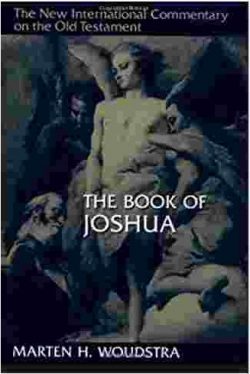
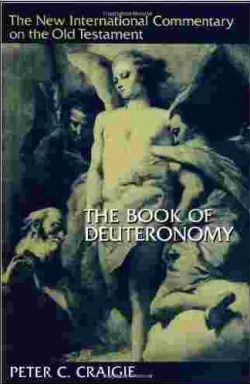
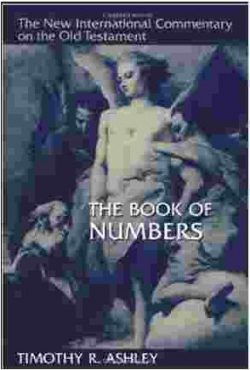
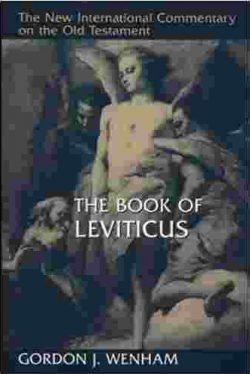
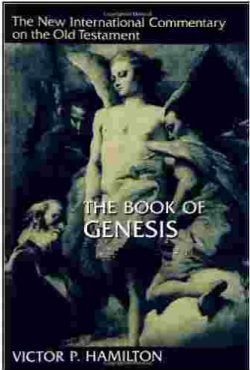
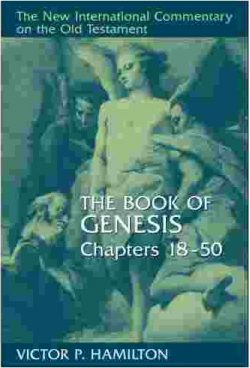
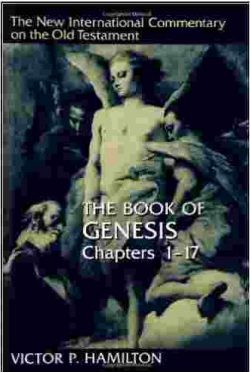
New International Commentary: The Book of Ruth
PRODUCT HIGHLIGHTS:
DESCRIPTION
The Book of Ruth contains one of the Bible’s best-known and most-loved stories. This major commentary by Robert L. Hubbard shows how the author of Ruth used, with great literary artistry, the story of Ruth and Naomi to convey important theological themes.
In his introduction, Hubbard discusses the issues of text, canonicity, literary criticism, authorship and date, purpose, setting, genre, legal background, and themes and theology, and concludes with an outline of the book and a thorough bibliography. The commentary proper is based on Hubbard’s own fresh translation and is accented by copious footnotes on textual, philological, and literary matters.
Gleaning the best from recent research on Ruth, Hubbard gives the story’s rich literary, grammatical, and theological dimensions a careful, rigorous treatment. He allows for the possibility that the anonymous author was a woman and argues that the narrative itself aims to counter opposition to the Davidic monarchy in Israel and Judah during Solomon’s reign. Throughout, Hubbard’s sensitivity to the literary genius of Ruth’s author and his coherent explication of the outworking of the book’s theological themes make this volume an invaluable tool for anyone desiring to explore the beautiful story of Ruth in depth.
….